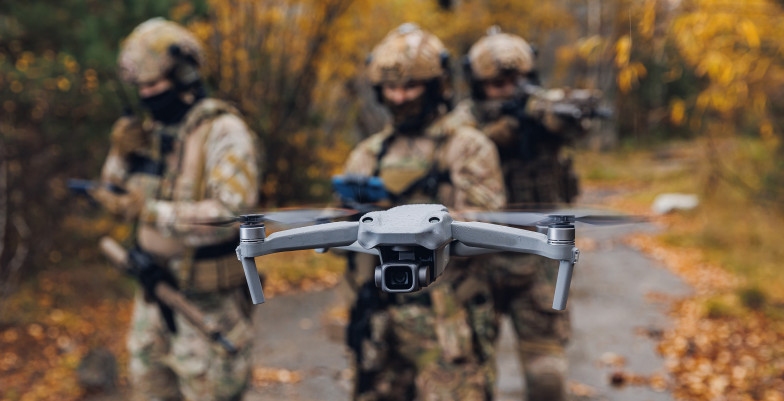Other multilateral partnerships on security and defence
EU COOPERATION WITH THE AFRICAN UNION
The European Union (EU) and the African Union (AU) maintain a strategic partnership grounded in shared values and mutual interests, particularly in peace and security. The EU provides substantial support to the AU through financial assistance, capacity building, and joint initiatives aimed at conflict prevention, crisis management, and post-conflict reconstruction. This includes backing AU-led peacekeeping missions, such as those in the Sahel and the Horn of Africa, and enhancing the AU’s institutional capacity through the European Peace Facility. This cooperation was further strengthened by the Memorandum of Understanding on Peace, Security and Governance, signed in May 2018, which provides a structured framework for strategic dialogue, early warning systems, and coordinated peacebuilding efforts, reinforcing African-led solutions to security challenges.
Cooperation highlights:
-
The EU is the AU’s partner on peace and security issues with political, financial and technical support. From the establishment of the Africa Peace Facility (APF) in 2003 to the allocation of about EUR 1 billion so far to African partners under the European Peace Facility (EPF) since mid-2021.
-
The EU welcomes the adoption of UNSC resolution 2719, which will allow for the use of UN-assessed contributions to finance up to 75% of AU-led Peace Support Operations (PSOs) authorised by the UNSC. EU Member States assessed contributions accounted for 23.54% of the UN peacekeeping budget in 2024.
-
Both organisations launched in 2023 the EU-AU Dialogue on Preventive Diplomacy and Peace Mediation, a forum to exchange on best practices on key issues of joint interest such as Early Warning, or Women, Peace and Security.
EU COOPERATION WITH OSCE
The EU and the Organization for Security and Co-operation in Europe (OSCE) closely cooperate on peace, security, and defence issues, based on shared values and complementary roles. They work together on conflict prevention, crisis management, and post-conflict recovery, particularly in the Western Balkans, Eastern Europe, and Central Asia. The EU supports OSCE field missions, including in Bosnia and Herzegovina, Kosovo, and previously Ukraine, providing political, financial, and operational backing. This partnership enhances regional stability and promotes a coordinated, multilateral approach to security across the OSCE area.
Cooperation highlights:
-
In March 2025, the EU and OSCE held the 7th EU-OSCE dialogue on peace mediation, conflict prevention and crisis management.
-
The EU-OSCE cooperation in Security Sector Reform continues in the field, with engagements between the respective missions.
EU COOPERATION WITH ECOWAS
The cooperation between the Economic Community of West African States (ECOWAS) and the European Union (EU) aims to promoting peace, stability, and sustainable development in West Africa. Rooted in shared values such as regional integration, good governance, and economic growth, the partnership has evolved to cover a wide range of areas including security, trade, migration, and institutional capacity-building. The EU has supported ECOWAS through financial aid, technical assistance, and political dialogue, particularly in conflict prevention, counterterrorism, and electoral processes. This collaboration not only enhances the regional leadership role of ECOWAS but also strengthens the EU’s commitment to fostering resilient and self-reliant partners in Africa.
Cooperation highlights:
-
The EU provides support to ECOWAS Regional Peace, Security and Stability mandate (EU-ECOWAS PSS) to build and maintain peace, security and stability in West Africa to ensure conditions of development.
In January 2024, the EU and ECOWAS held a first dialogue on conflict prevention and peace mediation. The results included establishing focal points for exchanges on all aspects of conflict prevention and peace mediation, encouraging closer coordination and exchanges on peace mediation activities. Next dialogue will take place in Abuja, Nigeria.
EU COOPERATION WITH ASEAN
Dialogue between the EU and ASEAN spans more than 45 years. The EU and ASEAN became Strategic Partners in 2020, and since then have deepened their cooperation. The 24th EU-ASEAN Ministerial Meeting in Brussels in February 2024 advanced joint work on maritime security, cybersecurity, counterterrorism, and non-proliferation. ASEAN is crucial to regional and global security. Our cooperation is evolving to address non-traditional threats, such as disinformation, space security, and emerging technology governance.
The EU funded project Enhancing Security Cooperation in and with Asia (ESIWA) supports crisis management and response to cyber-related threats. The EU engages in dialogue through the ASEAN Regional, the East Asia Summit and ADMM+ working groups.
Cooperation highlights:
-
Counterterrorism & Crime: In 2024, the EU and ASEAN co-hosted workshops on counter-radicalization and launched new efforts to counter terrorist financing. Ongoing work also includes support for deradicalization and reintegration.
-
Maritime Security: The EU shares ASEAN concerns over militarisation in the South China Sea and backs the legally binding 2016 Arbitration Award. The EU welcomes peaceful resolution efforts, such as the 2022 Indonesia–Vietnam maritime delimitation, and urges progress on a credible Code of Conduct.
Crisis Response in Myanmar: In 2024, the EU allocated over EUR 50 million in humanitarian aid for Myanmar and Rohingya populations in the region. Anticipatory action is increasingly integrated, using early warning systems to prevent suffering and loss before crises escalate.
EU COOPERATION WITH THE GULF COOPERATION COUNCIL (GCC)
In line with the Joint Declaration of the EU-Gulf Cooperation Council (GCC) Summit in 2024, and meetings of the EU-GCC Joint Council, the EU is further enhancing its dialogue and cooperation on security with the GCC.
In this vein, in 2025, the EU and the GCC held their 2nd Regional Security Dialogue with productive discussions on regional security and ways to deepen cooperation on peace and security in areas such as counter-terrorism, maritime security, cyber and hybrid threats, non-proliferation and disarmament, disaster prevention, preparedness and emergency management, peace mediation as well as combating drug trafficking and international organised crime.







